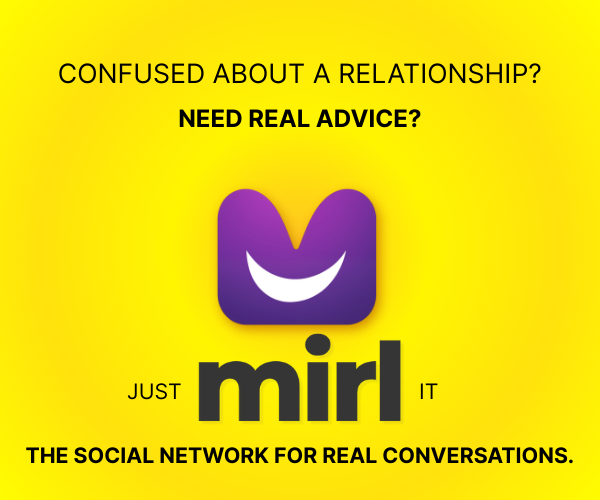23 Secrets to Stand Up for Yourself in a Relationship & Know Your True Worth

If you are always submissive, then you need to learn how to stand up for yourself in a relationship. Here is how you can do that so you can be happier.
As you will see, being a constant pushover harms not only you but the relationship itself in the long run. In these moments, the best way to deal with an overbearing or manipulative partner is by learning how to stand up for yourself in a relationship.
But first, let’s take a look at the signs that you don’t stand up for yourself in your relationship.
The subtle signs you don’t stand up for yourself if a relationship
Sometimes people don’t see themselves objectively. You might think that you stand up for yourself in your relationship, but if you see do any of these things, then you are not.
1. You never say no
Your partner is always in charge of the relationship. They tell you what to do and when to do it. And you never say no, regardless of how much you want to.
Heck, even if your partner wanted you to do something illegal, you just might do it because the word “no” isn’t even in your vocabulary anymore. [Read: How to say no – 15 ways to reason politely, stop pleasing, and feel kick ass]
2. You are a people-pleaser
Sure, it always feels good to make other people happy. That’s great! It says that you are a selfless person.
However, there comes a time when you go from making people happy out of the goodness of your own heart to becoming a complete doormat. If you let your partner walk all over you because you want to please them, then you do not stand up for yourself in the relationship.
3. You allow yourself to get yelled at
Maybe your partner is verbally, emotionally, mentally, or even physically abusive to you. And while they are abusing you, they yell at you. And you don’t say anything. You just sit there and take it.
Even if they’re not technically abusive, yelling and screaming are not healthy. You should stop that behavior. But if you don’t, then you have a problem.
4. You don’t talk back
As your partner is disrespecting you, your instinct is just to keep your mouth shut. You don’t defend yourself and you don’t talk back to them. Instead, you just sort of wait for the “storm” to end before you start talking again. [Read: How to communicate in a relationship – 16 steps to a better love]
5. You don’t draw boundaries
In a healthy relationship, both partners have boundaries. A boundary is something that is communicated between you and your partner.
It says, “this is the line you cannot cross. I won’t tolerate this kind of behavior.” If you never do that, then you are definitely not standing up for yourself in your relationship.
6. You fear conflict
No one really likes conflict – at least not most people. So, it’s not surprising that you don’t like it either. However, there’s a difference between not liking it and fearing it so much that you avoid it at all costs.
A person who stands up for themselves won’t shy away from conflict because they have respect for themselves.
7. You fear rejection
Just like how people don’t like conflict, most don’t like getting rejected either. But if you do get rejected, you probably feel like shriveling up and blowing away.
When you stand up for yourself in a relationship, you are okay with rejection because you know that it has nothing to do with you personally, and everything to do with the other person. [Read: How to respond to rejection and do the right thing even if it hurts]
8. You always give in
When you are fighting with your partner, you always give in to their desires. You might do this just to end the conflict so it can be over. Or, you might do it because you know that the consequences of not doing it would be unbearable. Either way, you never get what you want and you always submit to your partner’s desires.
9. You feel comfortable being submissive
Even though you rationally know that you shouldn’t always give in or be a doormat, there is part of you that is comfortable with that.
You actually might even enjoy being submissive to your partner. Maybe being dominant just isn’t in your personality, so you just let that dynamic play out in your relationship.
10. You can be passive-aggressive
If you’re not comfortable being submissive and never getting what you want, then maybe you have a tendency to be passive-aggressive. Maybe you say you’ll do something to please your partner, then you purposely don’t do it, hoping they won’t notice. [Read: How to stop being passive-aggressive – get out of the toxic state]
11. You do whatever your partner wants
You never get your needs and desires met. It seems like your partner doesn’t even know or care what they are because they always get to do what they want. In fact, you might not even know what you want anymore because you are always giving in to your partner and not standing up for yourself.
12. You have no life of your own anymore
The longer this relationship goes on, the more your old life will disappear. Maybe your partner has isolated you from friends or family, or maybe you just did it willingly.
Either way, you don’t have much of your independence anymore. Your life is not your own because you have become so dependent on your partner that your individuality has almost disappeared. Your world completely revolves around your partner.
13. You’re not sure what your own opinions are anymore
Because your partner is so dominant over you, your opinions are almost non-existent anymore. You wonder if what you are thinking or feeling are really your own thoughts and emotions or whether they are really your partner’s. Your identity has almost completely merged with your partner’s. [Read: How to express your opinions without seeming cocky]
14. You put your partner as your top priority
On the list of things that are most important to you, your partner is at the number one spot. In addition to that, you are at the bottom of that list. Other people and other things are somewhere in between.
But if you are always putting your partner first before everything else, then you don’t know how to stand up for yourself in the relationship
How important is it to stand up for yourself in a relationship?
Now that you know the signs that you don’t stand up for yourself in your relationship, you are probably wondering how important it is to do it anyway.
The answer to this is – it’s everything. You have to stand up for yourself in your relationship or you will lose yourself *if you haven’t already*. And you don’t want that, do you? [Read: How to stand up for yourself – get what you want and deserve]
You see, in order to stand up for yourself in your relationship, you need to have self-love and self-respect. Without that, you will always be a doormat and your partner will forever walk all over you.
So, you really need to work on your self-esteem if you want to learn how to stand up for yourself in your relationship.
And here are some ways you can start doing that.
How to stand up for yourself in a relationship
Standing up for yourself in a relationship can be daunting. Especially if you’re the type who dislikes confrontation, or are a people pleaser who doesn’t want to upset your partner.
You think it’s easier just to let everything slide rather than risk starting an argument that escalates conflict and places a strain on the relationship. [Read: 20 most common people pleasing signs you may be overlooking]
1. Know your worth in the relationship
The first step in standing up to your partner is knowing your worth in a relationship. Relationships are essentially symbiotic, and both partners depend on the other in some form or another.
When one party forgets their worth in a relationship, it is easy to feel that they don’t have a say in anything or that their feelings don’t really matter much. This way, they are bullied, coerced, or manipulated by their partner.
Knowing one’s worth gives the necessary confidence to assert your fair share of respect and recognition in the relationship. [Read: How to stop being insecure in a relationship and find happiness]
2. Know your worth outside the relationship
Acknowledge that you have worth outside the relationship. If you are taken for granted, you can easily break from the relationship and be with the people who grant you the respect and appreciation you deserve.
Some people assume there’s nothing else for them except the oppressive relationship they are in, making it easy for their partner to get what they want. Once you make your partner realize that you have leverage in the relationship, they give you the respect you are due. [Read: Types of toxic relationships to watch out for]
3. Be assertive instead of aggressive
An assertive approach to your partner is positive and constructive while aggression only fosters further conflict. When standing up for yourself, always take the higher moral stance that moves in the direction of preserving the relationship. Specifically, choose your words carefully and match their attitude accordingly in a discussion.
An assertive person holds their own in a conversation and stays firm on their beliefs without being perceived as accusing or demeaning.
4. Don’t be intimidated by increased decibel levels
There are moments when things take an ugly turn. A simple conversation escalates into a shouting contest. Some people assume a louder voice will be an easy ticket for them to get people to do what they want or to win an argument.
Remember that the louder the voice, the emptier a threat that it carries. Let your partner raise their voice. Stand firm, be calm, and casually move the conversation back to the topic. [Read: Relationship arguments and 23 dos and don’ts to remember]
5. Don’t be intimidated by silence
Some people prefer using the silent treatment to emotionally submit their partner to their will. Don’t be intimidated by this either.
Deal with a partner who constantly withdraws affection and gives you the silent treatment by calling out their act and pointing out their manipulation to get what they want instead of opening a discussion. This way, they’ll realize that using the silent treatment is futile. They are forced to enter an adult discussion. [Read: How to deal with passive-aggressive people and maintain your sanity]
6. Communicate what you want clearly
People understand things better if they’re handed to them straight and unadulterated.
If you want to know how to stand up for yourself in a relationship, remember that fact, because being in a relationship sometimes makes us tread carefully with our words. We sometimes keep our opinions to ourselves to avoid hurting or upsetting our partners.
This self-censorship seems thoughtful at first, but it leads to miscommunication and misunderstandings sooner or later. That’s why people are encouraged to say what they want clearly even if it makes their partner feel uncomfortable.
7. Learn how to say no
If you disapprove of a decision or are simply presented with anything that makes you uncomfortable, learn to say no and own that answer. Being a yes man in a relationship ultimately causes undue emotional distress and feelings of oppression. Learn how to say no if you feel strong disapproval, no matter if it disappoints your partner.
8. Don’t be afraid to point out that your partner is wrong
If your partner is wrong, call it to their attention. In the end, you’re doing your partner a great service by pointing out wrongdoing. Otherwise, they could feel embarrassed if another person points it out to them.
People are normally apprehensive about doing this. They fear angering or upsetting their partner. However, if you explain your motive in pointing out their wrongs, they will surely appreciate it. [Read: Rules to being a good partner in your relationship]
9. Be diplomatic at all times
Standing up for yourself doesn’t mean you take the role of the overbearing and manipulative partner who dominates their partner in every way. Always go for the higher moral ground. Practice fairness and diplomacy, especially when discussing something where you both have different opinions.
Consider your partner’s point of view and be empathic towards their feelings, especially in times of conflict. This way, they will respect you and treat you as an equal in the relationship.
[Read: The 30 answers to the question of what makes a good relationship]
Most people want a harmonious relationship. To achieve this, we please our partners by being agreeable to what they want. But it is vital to learn how to stand up for yourself in a relationship too.


















